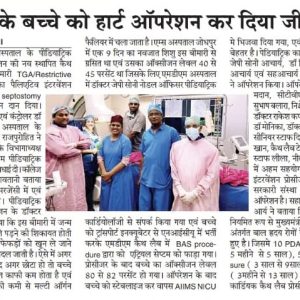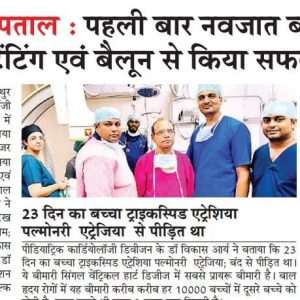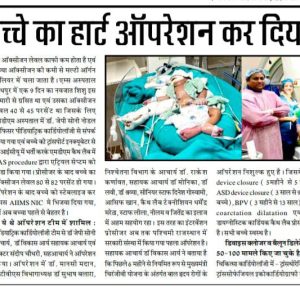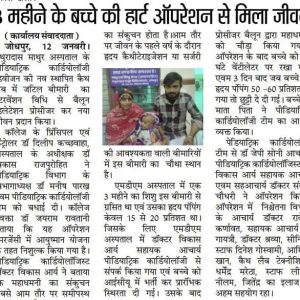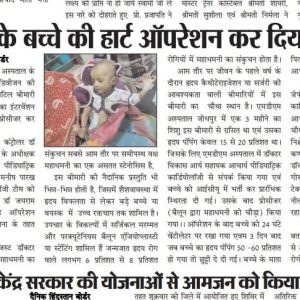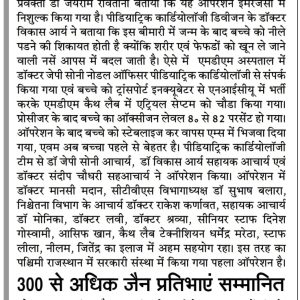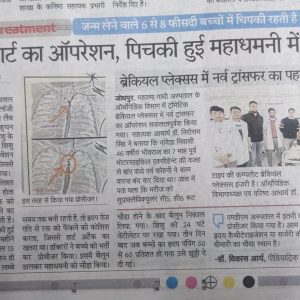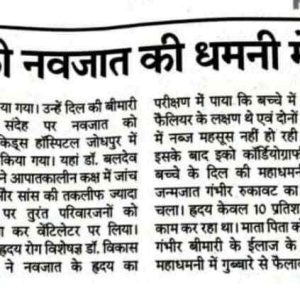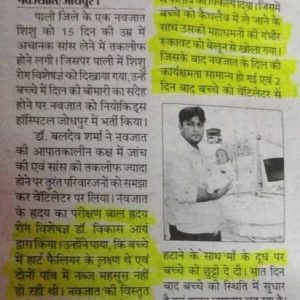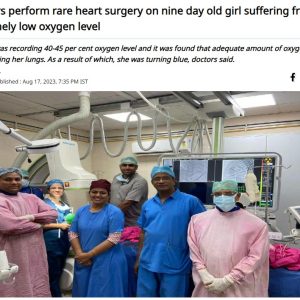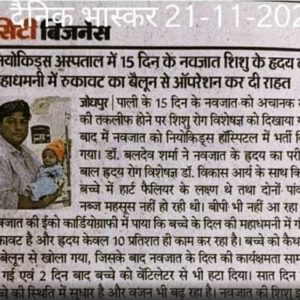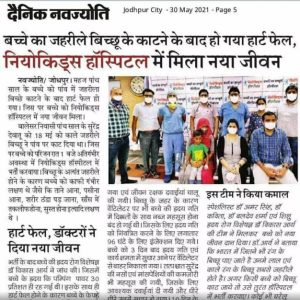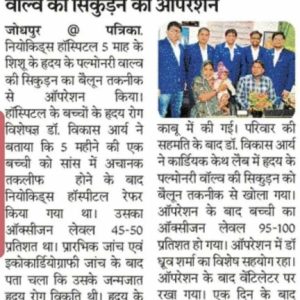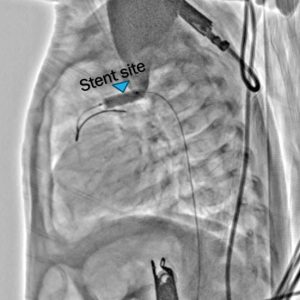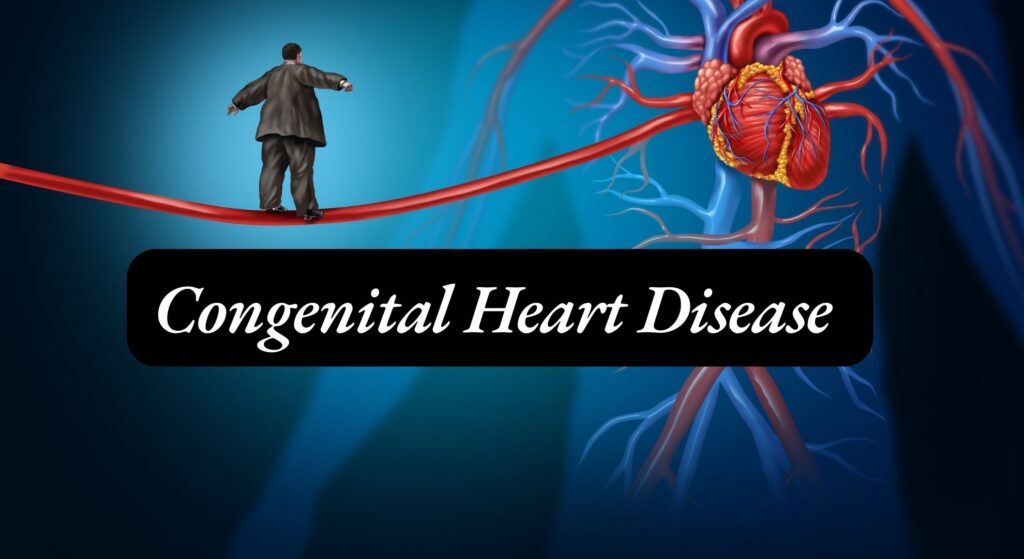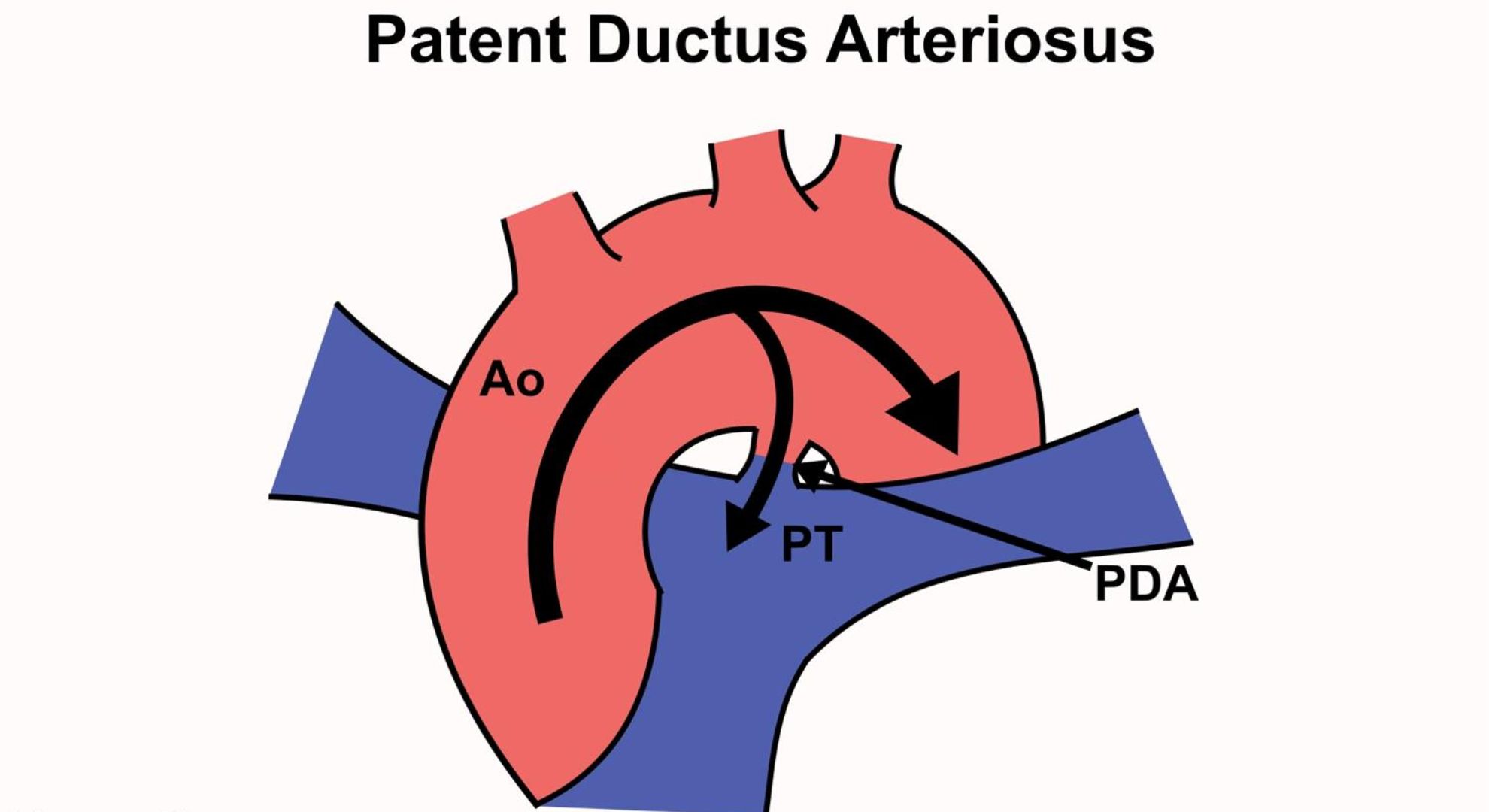


Solutions (1)

Excellence in Every Heartbeat!!
Structural Heart Interventionist
(0 to 80 years)
(0 to 80 years)
&
Neonatal & Pediatric Interventional Cardiologist
Baby and Child Heart Specialist
Solutions (1)



Did An Open Heart Surgery of 9 days Old baby
TGA Surgery Now in Jodhpur
Heart Surgery of 15 days Old baby
Heart Surgery of 5 month Old baby
Solutions (1)


PDA Stenting Now in Jodhpur



Solutions (1)

Excellence in Every Heartbeat!!
Structural Heart Interventionist
(0 to 80 years)
(0 to 80 years)
&
Neonatal & Pediatric
Interventional Cardiologist
Interventional Cardiologist
Baby and Child
Heart Specialist
Heart Specialist
Solutions (1)



Did An Open Heart Surgery of 9 days Old baby
TGA Surgery Now in Jodhpur
Heart Surgery of 15 days Old baby
Heart Surgery of 5 month Old baby
Solutions (1)

PDA Stenting Now in Jodhpur

Dr. Vikas Arya
Pediatric Cardiologist
in jodhpur, rajasthan
Dr. Vikas Arya, a paragon Pediatric Cardiologist in Jodhpur, Rajasthan has dedicated his medical career to comprehend and treat issues of the heart.
Primarily in the field of advanced Pediatric and Fetal Echocardiography, Invasive and Non Invasive Cardiologist.
Dr. Vikas Arya, an empathetic and highly proficient pediatric cardiologist dedicated to providing specialized heart care for children. With years of experience and a deep understanding of young hearts, Dr. Vikas Arya combines advanced medical expertise with a gentle, child-friendly approach. Every patient and their family is treated with the utmost care, because at the heart of it all, it's about making sure your little one stays healthy and happy.
A child's smile is a work of art, and the purest expression of
joy.




Rheumatic Heart Disease
Patent Ductus Arteriosus (PDA)
Patent Foramen Ovale (PFO)
Anginia
Treatment




Blocked Arteries
Hole in Heart
Left Chest Pain
Congenital Disease
Our Services




Heart Consultation
Balloon Aortic Valvuloplasty
Pericardio
centesis
Balloon Pulmonary Valvuloplasty
Procedures



Angiography
Patent Ductus Arteriosus (PDA)
Device Closure



Bypass
Catheterization
Our Efforts
Your Success
Happy Patients
0
Procedures
0
Awards
0
Years of Experience
0
Media Mention
Happy Patients
Learn With Us
Contact Us
Clinic 1
Request A Call Back
TIMINGS
Mon - Thur
5:30 pm to 08:00 pm
Fri & Sat
5:30 pm to 07:00 pm
Sunday Closed
What people want to know
FAQs
What is CHD?
Congenital malformations of the heart and circulation are not fixed anatomic defects that appear at birth but instead are anomalies in flux that originate in the early embryo, evolve during gestation, survive the dramatic circulatory alterations at birth, and change considerably during the course of extrauterine life
How can I know about my baby'sCHD?
If your pediatrician suspects any abnormal sound during chest auscultation or suspect heart disease If your baby is failure to grow or having feeding difficulty while breast feeding he has sweating over forehead or suck at teat then rest like he did some exercise gather his breath and then again try to suck or excessive cry only, never satisfy his hunger there could be heart disease or defect in heart If his periphery became bluish discoloration or lips turning blue or occasionally he fatigued out? Then consult pediatric cardiologist he will find out the defect with Chest Xray, ECG and Echocardiography?
Can I know about my baby's CHD in my pregnancy?
Yes, anyone can undergo simple sonography test called as fetal echocardiography Fetal echo rules out serious congenital heart disease although it can’t rule out simple CHD’s (like PDA/small ASD/Small VSD) It should be done for all pregnant females whose anomaly scan done at 16weeks showed some form of heart disease in fetus Should be done by Fetal and Pediatric cardiologist only.
How long can I wait for my baby's CHD Surgery?
It depends what type of defect or CHD a child have. If a baby is blue then it’s an emergency and immediate check up with pediatric cardiologist is warranted. But surgery decision should be taken after all necessary investigations. But in general, if pediatric cardiologist tells you that it a single ventricle situation then within 3 months 1st surgery, then at 6 months Glenn and at 3.5 yrs Fontan completion surgery should be done. Obstruction and stenotic lesion, baby needs immediate attention and intervention/sugery should be done.
In CHD will my baby have an Open Heart Surgery?
Every child will not have open heart surgery, in these cases catheter intervention just like an angiography could be performed. Whenever is possible catheter intervention is far more superior then surgery as it leaves behind the midline big scar and operation related issues or recovery.
For how long my baby will be admitted in the hospital after CHD surgery?
Mostly it takes 7-10 days of hospital stay but if any complication occurs peri-operatively then stay could be increased
In which month of pregnancy can I know about my baby's CHD?
It should be done for all pregnant females whose anomaly scan done at 16weeks showed some form of heart disease in fetus Can be done from 16 weeks to 20 weeks ideally but after also can be done till baby is born. Of course, CHD should be confirmed after birth of baby by neonatal echo.
Can a baby's CHD treated without a surgery?
With intervention technique its quite possible sometime to avoid large scar of surgery and prolong course of stay. Even now minimal access surgery is available where with even minimal incision surgery could be performed, however these are costly.
Who is responsible for my baby's CHD?
- There’s usually no clear reason why a baby is born with congenital heart disease (CHD), but some factors may increase the risk:
- Genetic factors-Some types of CHD are linked to abnormalities in the number or structure of chromosomes, or to single gene defects. Genetic syndromes like Marfan syndrome, Smith-Lemli-Opitz syndrome, and Ellis-van Creveld syndrome are associated with a higher risk of heart defects.
- Environmental factors–Some things the mother did or took during pregnancy may increase the risk of CHD, including:
- rubella (German measles)
- Taking certain medicines, like statins or anti-seizure medicines
- Smoking or drinking alcohol
- Having poorly controlled diabetes
- Multifactorial inheritance-In 85–90% of cases, there’s no identifiable cause. This is thought to be due to multifactorial inheritance, which means that a combination of genes from both parents, plus unknown environmental factors, are involved.

